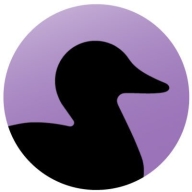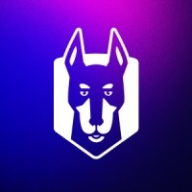

Black Duck SCA and Snyk compete in the software composition analysis space. While Black Duck SCA provides comprehensive support and pricing options, Snyk has the upper hand with its cutting-edge features that enhance pipeline efficiency and modern development practices.
Features: Black Duck SCA provides effective vulnerability detection, license compliance, and risk management for open-source components. Its management system offers a seamless environment for checking licenses and identifying potential vulnerabilities. Snyk focuses on seamless CI/CD integration, offering rich insights into security vulnerabilities and licenses while emphasizing developer-centric tools. Its ease of use, coupled with actionable vulnerability insights, creates a secure and efficient development workflow.
Room for Improvement: Black Duck could enhance its security feature for more precise vulnerabilities identification and reduce the error rate during component analysis. Improvement in user interface experience would also benefit its effectiveness. Snyk could expand its vulnerability database to include more comprehensive details and improve its accuracy regarding licensing issues, notably for non-SPDX compliant licenses.
Ease of Deployment and Customer Service: Black Duck SCA is tailored for enterprise environments with comprehensive customer support. Snyk excels with its cloud-based deployment solutions and flexible integrations, supported by responsive customer service, making it suitable for environments requiring quick turnarounds.
Pricing and ROI: Black Duck SCA entails a higher initial cost with significant long-term ROI, owing to its detailed scanning capabilities. Snyk offers flexible and competitive pricing, leading to faster time-to-value, making it an attractive option for rapidly evolving development teams.
If you're using it on critical external programs where there is regulatory compliance on ensuring that the source code is clean from open-source, there's substantial ROI.
There are some pain points with the response time and first-level support quality.
We could understand the implementation of the product and other features without the need for human interaction.
Their response time aligns with their SLA commitments.
Our long-standing association has ensured smooth communication, resulting in favorable support experiences and satisfactory issue resolution.
I would rate the scalability of Black Duck 8 or 9.
Snyk allows for scaling across large organizations, accommodating tens of thousands of applications and over 60,000 repositories.
It can improve on the security side of it, specifically vulnerabilities identification.
There are areas for improvement such as false positives and the scanning of containers.
Black Duck does not have the SBOM management part.
Both Veracode and Snyk should implement this new scoring system for CVSS and AIVSS.
The inclusion of AI to remove false positives would be beneficial.
It lacks the ability to select branches on its Web UI, forcing users to rely on CLI or CI/CD for that functionality.
Snyk is less expensive.
After negotiations, we received a special package with a good price point.
Snyk is recognized as the cheapest option we have evaluated.
The most valuable feature of Black Duck is the composition analysis feature, which is effective for security risk management.
Black Duck's ability to identify dependencies very accurately has been most valuable in identifying and mitigating risks.
The software composition analysis is most effective for security risk management.
Our integration of Snyk into GitHub allows us to automatically scan codebases and identify issues, which has improved efficiency.
Snyk helps detect vulnerabilities before code moves to production, allowing for integration with DevOps and providing a shift-left advantage by identifying and fixing bugs before deployment.
The best feature of Snyk is the integration with our ticketing system, which is Jira.
| Product | Market Share (%) |
|---|---|
| Snyk | 13.2% |
| Black Duck SCA | 15.7% |
| Other | 71.1% |


| Company Size | Count |
|---|---|
| Small Business | 6 |
| Large Enterprise | 16 |
| Company Size | Count |
|---|---|
| Small Business | 20 |
| Midsize Enterprise | 9 |
| Large Enterprise | 21 |
Black Duck is an essential tool for software composition analysis and license compliance. It identifies vulnerabilities effectively and supports security management in DevOps environments, offering integration, performance stability, and community support.
Organizations rely on Black Duck for seamless integration in CI/CD pipelines, thorough scanning of source and binary codes, and management of operational risks associated with open-source and commercial licenses. It plays a crucial role in security risk management and delivers a robust policy management framework. Users value its ease of use and reliable community support while benefiting from its comprehensive dependency visualization capabilities. Despite its strengths, there is room for enhancement in integration with other tools, UI friendliness, and reporting features.
What are Black Duck's key features?
What should users look for in ROI?
Enterprise environments use Black Duck extensively for security, compliance, and risk management, ensuring software meets regulatory standards and mitigates vulnerabilities. Its implementation in specific industries aids in controlled and secure software development processes, underlining its role in maintaining rigorous security standards while delivering dependable performance.
Snyk excels in integrating security within the development lifecycle, providing teams with an AI Trust Platform that combines speed with security efficiency, ensuring robust AI application development.
Snyk empowers developers with AI-ready engines offering broad coverage, accuracy, and speed essential for modern development. With AI-powered visibility and security, Snyk allows proactive threat prevention and swift threat remediation. The platform supports shifts toward LLM engineering and AI code analysis, enhancing security and development productivity. Snyk collaborates with GenAI coding assistants for improved productivity and AI application threat management. Platform extensibility supports evolving standards with API access and native integrations, ensuring comprehensive and seamless security embedding in development tools.
What are Snyk's standout features?Industries leverage Snyk for security in CI/CD pipelines by automating checks for dependency vulnerabilities and managing open-source licenses. Its Docker and Kubernetes scanning capabilities enhance container security, supporting a proactive security approach. Integrations with platforms like GitHub and Azure DevOps optimize implementation across diverse software environments.
We monitor all Software Composition Analysis (SCA) reviews to prevent fraudulent reviews and keep review quality high. We do not post reviews by company employees or direct competitors. We validate each review for authenticity via cross-reference with LinkedIn, and personal follow-up with the reviewer when necessary.